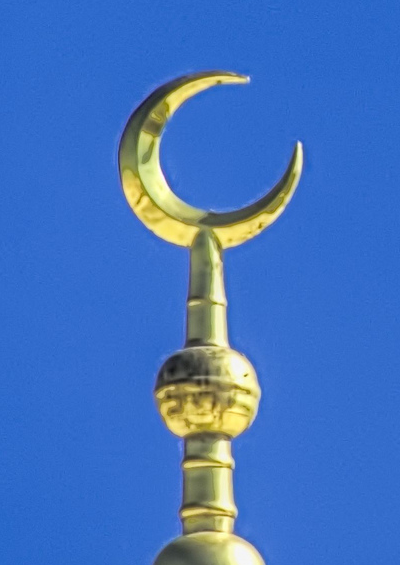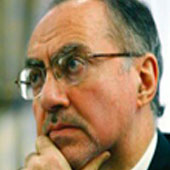The Reformations of Islam
What changes will determine the course of Islam in the 21st century?
April 9, 2010

The remaking of a civilization will not be a simple and short affair.
Easy and simplistic predictions, which rely on historical analogy or the inevitable surrender to the forces of technology and economic power, are bound to be wrong.
The Reformation took nearly two centuries before the end of the wars of religion could be proclaimed.
The crises within Islam have not yet reached a full-scale war between the sects, although they came dangerously close to that result in recent years in the Arab Middle East — as they did in Iraq during the 2005-2007 civil strife and in Lebanon after the brief war between Israel and Hezbollah in the summer of 2006.
The brew is dangerously unstable, and it is being added to, on an almost daily basis, by outside meddling which is driven by ignorance, sheer bigotry and unwillingness to accept a worldview which, no matter how confused, dazed and tattered at present, might nevertheless offer an alternative vision of life for a significant portion of mankind.
The cast of characters and ideas competing for attention and power in the world of Islam is as varied as that of the Reformation in Europe. It is unlikely that one set of ideas or doctrines will prevail, or that one state will emerge as the nucleus of a new world power or, in the nightmare of national security policy planners, as a super-Islamic state.
It is too early to say which way the wind is blowing. There is still a host of issues and problems that have to be resolved, but one can isolate a number of them for special attention. These include the narrowing of Sunni thought, the prospects for Iran's unique form of religious government and the long-term effects of the West's intervention in Muslim affairs, which is partly motivated by the imperative to contain radical political Islam.
In this confused and turbulent landscape, the prospects for traditional orthodoxies may appear uncertain — but their resilience should not be underestimated. It is likely, therefore, that the varieties of orthodoxies will continue to define the landscape of Islam.
What type of orthodoxies will prevail? Will there be space for other forms of Islamic expression, small or large, marginal or significant?
At the broadest level, the Sunni world will have to determine for itself whether the historical schools of Islam and their collective traditions continue to form the backbone of jurisprudential rulings during the long process of adjustment which is the revolt of Islam.
The challenge from a vigorous and well-funded Wahhabi/Salafi movement is far from being contained, but at least the response to its radical and violent wing is no longer so supine. Particular schools of Sunni Islam, aided by the state, may re-assert their authority in countries with which they had been historically associated.
This seems to be happening in Morocco, where the Maliki school of law is being re-emphasized as state policy. Also in Malaysia, the Shafi'i school of law has been intimately connected with the Islamization of the Malays.
We may see a greater identification of the varieties of Islam with the major specific ethnic and cultural groups of the historical civilization of Islam: The Arab world, the South Asian world, the Malay world, the African world and the Turkic-speaking world — each of these containing between 200 and 400 million Muslims.
A reinvigoration of Sufi orders and of less structured spiritual movements is already apparent, recreating the diversity and the spirit of inner directedness which has been the hallmark of pre-modern Islam.
A specific “diaspora” Islam may also emerge, dealing with the particular needs and requirements of Muslims — both immigrants and converts — in a Western context. It is in this arena that the more pressing issues of identity, citizenship, religious loyalty, integration and multiculturalism will have to be resolved — or left festering.
English has already joined Arabic, Persian and Urdu, the classical languages of Islamic high culture, as a medium for expressing ideas in modern Islam. Its wide-spread use by western-educated Muslims is bound to have an effect on the evolution of Islamic culture and civilization. This is a powerful unknown, as English brings with it the possibility of articulating entirely new concepts.
The Shia world, also a block of nearly 200 million Muslims, is one that cuts across ethnic and cultural lines. Shiism will continue to be colored by its status as the national religion of Iran and by the powerful role of Iranian ayatollahs. But it will have to contend with the possibility of a reinvigorated and independent hierarchy emerging from the upheaval in Iraq.
A combination of a territorial Shia hierarchy, focused on a particular country but with grand ayatollahs hailing from different parts of the world (a phenomenon which seems to be emerging in Iraq), may co-exist with a “national” Shia authority, as in Lebanon. These various outcomes for the Shia would have to deal with the centralized religious authority of the Iranian state under its supreme religious ruler.
The course of Shiism in the world will most certainly be affected by the future of the Iranian theocratic regime and, to a lesser extent, by the revitalization of the seminaries and academies of Najaf. Whether they will ever match the sheer scale and scope of the state-sponsored institutions of Iran is a moot point.
The challenge of dissident Islamic groups to the ruling orthodoxies will always be there, and it may even be exacerbated. The challenges may come from political groups, but they could also be mass movements associated with charismatic leaders or apocalyptic expectations.
The sum total of these changes, played out over decades, will determine the course of Islam in the 21st century.
The reformation of Islam will be an incremental process of change and adjustment, punctuated by upheavals, crises and traumas that will feed back into the adjustment process.
Editors Note: This feature is an excerpt from "The Crisis of Islamic Civilization" by Ali Allawi. © Ali A. Allawi 2009. Reprinted with permission of Yale University Press.
Takeaways
English has already joined Arabic, Persian and Urdu — the classical languages of Islamic high culture — as a medium for expressing ideas in modern Islam.
The Reformation took nearly two centuries before the end of the wars of religion could be proclaimed.
The cast of characters and ideas competing for attention and power in the world of Islam is as varied as that of the Reformation in Europe.
The crises within Islam have not yet reached a full-scale war between the sects, although they came dangerously close.
